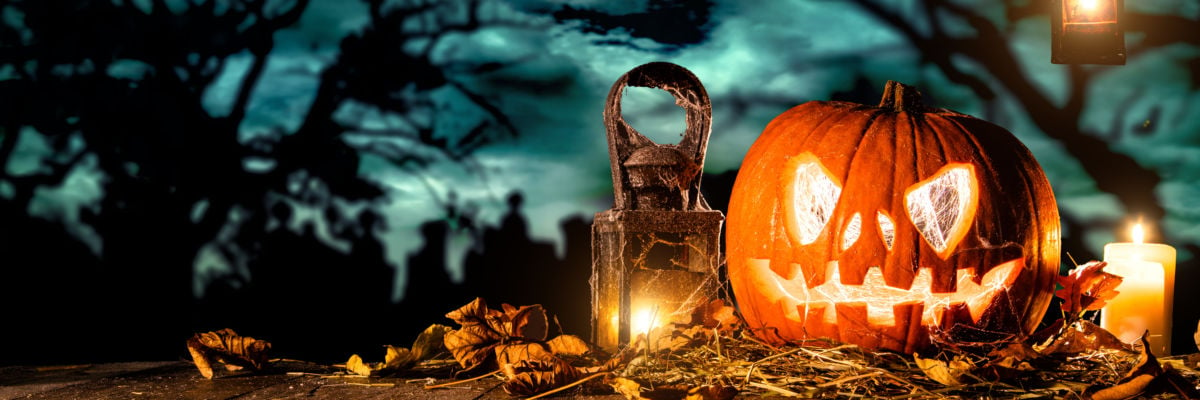
Is Halloween too obsessed with evil for Christians to participate? Is it descended from a pagan holiday? Is it really contrary to faith or morals to decorate your house with spiders, dress up in a costume, and go trick-or-treating? Jimmy Akin gives the answers.
Transcript:
Caller: Since it’s October, knowing Halloween is the day before All Saints Day, knowing that a lot of Protestants are kind of anti-Halloween, how do we defend the religious, holy aspects of Halloween while also explaining the modern ideas or practices of Halloween?
Jimmy: In regard to explaining the religious aspects of it, well, we can say: okay, look, the word hallow means “holy.” It’s just another form of the word “holy,” and that’s why in the Lord’s prayer we say “Hallowed be thy name.” And most Protestants are familiar with that, they’ll say “Hallowed be thy name.” It means “May people treat your name as holy.” That’s what we’re asking God to do, we’re hoping and wishing and praying that people will treat God’s name as holy. But that’s what “Hallowed be thy name” means.
And in the same way, a hallow is a holy person, and so it’s just another word for “saint.” English has this dual vocabulary that it got from Latin and German, and the Latin word for saint is sanctus, which is where we get saint from; but the German word gives us hallow, so a hallow is simply a saint, and All Hallows Day is the day where we celebrate all of the saints who are in heaven.
And, you know, there are Christian forebears, we want to preserve their memory, just like Protestants preserve the memory of their spiritual forebears. You know, maybe they want to preserve the memory of Martin Luther or John Calvin, or someone we have in common like St. Augustine or Thomas Aquinas. But obviously we want to preserve the memory of our of our Christian forebears, we want to honor their example, and that’s what we do on All Saints Day, or All Hallows Day.
And because this is a special day on the Church’s calendar, historically people would get ready for special days, you know, maybe since people worship on Sundays, for example, they may get ready on Saturday night for what they’re going to do on Sunday. Christmas is a big day, and so people celebrate Christmas Eve, you know, they do special things on Christmas Eve to get ready for Christmas; and in the same way, people historically have done special things on the eve of All Saints Day. And so the eve of All Hallows Day is Halloween, to say it another way. And so in terms of the religious observances, well it’s just a way of honoring our Christian forebears and the example that they gave us.
Now in terms of the modern celebration, you know, there’s a mix. Some modern aspects of pop culture celebration of Halloween aren’t that great, and we don’t need to defend those, and we can acknowledge that. You know, people running around glorifying evil, well, that’s not really in keeping with the spirit of honoring our Christian forebears. On the other hand, we don’t have to be puritanical about it. It can be legitimate, as a form of just imaginative play, to play dress-up, you know, and you don’t have to play dress-up as a saint, some people do that, but you don’t have to. Kids enjoy play and dress up as other things, whether it’s, you know, historically, nurses and cops and all kinds of different roles that they might have as adults. And it’s not intrinsically wrong to even dress up as a monster just for fun.
If you’d like to learn more about that then I can really go into at the moment, Google “Jimmy Akin and Halloween” and you’ll come up with some things that I did on this, like “Are scary Halloween costumes okay?” for example, I did a video about that some some years ago, and you can find that video. But we want to acknowledge that there are ways of celebrating Halloween that are inappropriate, but there are also ways that are perfectly healthy and just part of ordinary culture that aren’t offensive to the faith.
One thing—and you didn’t ask about this, but this is something I find particularly interesting—you will also have some individuals—and this is far from all Protestants—but you will have some individuals in the Protestant community, only some, criticize Christmas and Easter, claiming that they were originally pagan holidays that Christians hijacked and then created this alternative, more Christian celebration. Well actually, that’s not true. Christians didn’t do either one of those things.
But even if they had, what’s wrong with subverting a pagan holiday and creating an appropriate alternative celebration so that people don’t go do the bad celebration? That’s what these anti-Halloween folks are doing when they have a harvest festival or a Reformation Day festival or something like that. They say “I don’t like Halloween, I don’t think it’s wholesome, so we’re going to create our own alternative celebration that’s wholesome so that people won’t be tempted to go do the bad one.” Well, if there had been pagan holidays that Christians were copying with these, that’s all they would have been doing, and guess what—it looks like you’re doing the same thing. So what’s wrong with Christmas and Easter as wholesome Christian celebrations even if they were alternatives to pagan ones (which they weren’t)?



